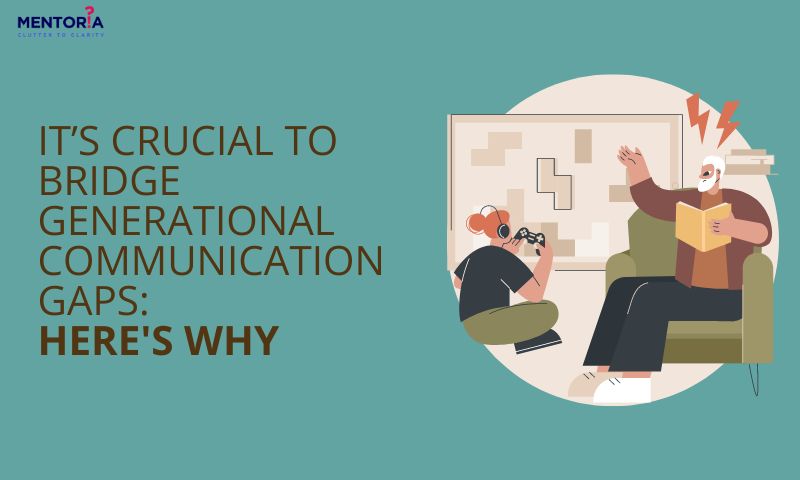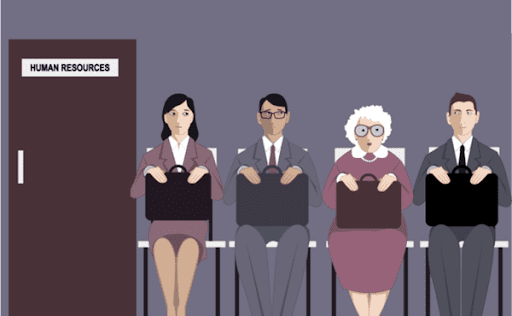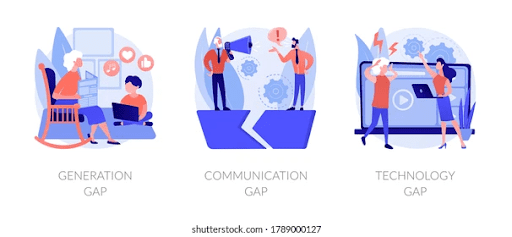It’s Crucial To Bridge Generational Communication Gaps: Here’s Why

Ah, the eternal struggle of communicating with people from different generations. It’s like trying to speak a foreign language, only the words are the same but the meaning is totally different. We sure have found ourselves rolling our eyes at some of the things our parents and grandparents say, and they’re just as confused by the weird acronyms and slang we use. But why does this happen? What causes these generational communication gaps? And more importantly, why should we care?
Well, the truth is that understanding generational differences is crucial in today’s world. It’s not just about being polite or avoiding misunderstandings and ageism (although those are good reasons too). It’s about creating a more inclusive, collaborative, and innovative society. So let’s dive into the fascinating world of intergenerational communication and learn how to bridge the gap between “OK, boomer” and “lit AF”.
From Typewriters To TikTok, There Came A Huge Gap Between Generations
You know that feeling when you’re trying to explain something to your grandparents, and they just stare at you like you’re speaking a different language? Yeah, that’s what we’re talking about today: generational communication gaps. They’re like the Bermuda Triangle of communication, where words and meanings disappear without a trace.
One major culprit of generational communication gaps is technology. For us Gen-Zers, technology is second nature. We can navigate a smartphone like it’s nobody’s business, while Boomers are still trying to figure out how to set up a Facebook account. And don’t even get us started on emojis – our grandparents probably think they’re some kind of ancient hieroglyphics.
Historical events and societal changes are other factors that contribute to generational communication gaps. For example, Boomers may have a strong attachment to the American Dream and traditional values, while Gen-Zers are more focused on social justice and individual expression. It’s like we’re speaking different dialects of the same language.
Differences in values and beliefs can also create misunderstandings. Boomers may see Gen-Zers as entitled and self-centred, while Gen-Zers may view Boomers as outdated and closed-minded. It’s like trying to communicate with aliens from a different planet.
And let’s not forget about communication styles and preferences. Boomers may prefer a phone call or face-to-face conversation, while Gen-Zers are all about text messaging and DMs. We’ve got our own vocabulary too – “lit,” “on fleek,” “savage” – which can leave Boomers scratching their heads in confusion. So, what can we do to bridge the generational communication gap? And how does it even impact the larger society?
The Dark Side Of Generational Communication Gaps
Generational communication gaps can be a source of humour and amusement, but they can also have some seriously negative effects. Here are some of the ways that miscommunication between generations can mess up your life (and your relationships).
First off, we have misunderstandings and conflicts. When you don’t understand where someone is coming from, it’s easy to misinterpret their words and actions. This can lead to arguments and hurt feelings, even when everyone has the best intentions. And don’t even get us started on the time your grandpa called you “dude” and you thought he was disrespecting you.
Next up, we have stereotyping and prejudice. When we don’t take the time to understand someone’s perspective, it’s easy to fall back on stereotypes and assumptions. Boomers might assume that all Gen-Zers are lazy and entitled, while Gen-Zers might assume that all Boomers are out of touch and resistant to change. These assumptions can lead to prejudice and discrimination, even when we don’t mean to be hurtful.
In the workplace, generational communication gaps can lead to inefficiencies and decreased productivity. When team members aren’t on the same page, projects can get delayed or derailed. And when employees don’t feel heard or valued, they’re less likely to be engaged and motivated. It’s like trying to build a house with mismatched tools – it might work, but it’s going to take a lot longer and be a lot more frustrating.
Last but not least, we have reduced social interaction and isolation. When we don’t understand someone’s perspective, it’s easy to distance ourselves and retreat to our own corners. This can lead to feelings of isolation and loneliness, especially for older generations who might not have as many opportunities for social interaction. And let’s face it – it’s hard to connect with someone when you don’t understand what they’re saying.
In conclusion, generational communication gaps might seem harmless, but they can have some seriously negative effects. The good news is that with a little bit of effort and understanding, we can bridge the gap and build stronger, more resilient relationships. So let’s put down our phones and take the time to really listen to each other – who knows, we might learn something new!
Breaking Down The Barriers: Bridging The Generational Divide And Getting Along
So we know that generational communication gaps can be a source of tension and conflict, but what can we do about it? Luckily, there are some simple strategies that can help us bridge the divide and build stronger relationships with people of all ages.
- Listen actively and practice empathy: Try to understand other people’s perspectives even if you don’t agree with them. It also means putting ourselves in their shoes and understanding where they’re coming from. This can be tough when we have such different life experiences, but it’s essential if we want to build bridges instead of walls.
- Educate yourself: attend a workshop or training session on generational differences, or do some research on your own. This might mean attending a workshop or training session on generational differences or doing some research on our own. The important thing is to stay curious and open-minded.
- Communicate openly and respectfully: avoid stereotypes and assumptions, and really take the time to listen and respond thoughtfully. It also means being willing to admit when we’re wrong and working together to find common ground.
- Collaborate and work as a team: working together on a project or problem is a great opportunity to build stronger relationships and find new ways to connect. This can be a great opportunity to build stronger relationships and find new ways to connect. Plus, it’s a lot more fun than arguing all the time!
In conclusion, bridging the generational communication gap is all about being open-minded, empathetic, and respectful. So let’s start working on building bridges instead of walls!
Time To Fill The Gap!
Understanding and bridging generational communication gaps is essential if we want to thrive in today’s rapidly changing world. So let’s embrace our differences, work together, and build a better future for all! And if you’re looking for more guidance on this topic, be sure to check out Mentoria – we offer personalised mentoring and coaching to help you succeed in any area of life.











